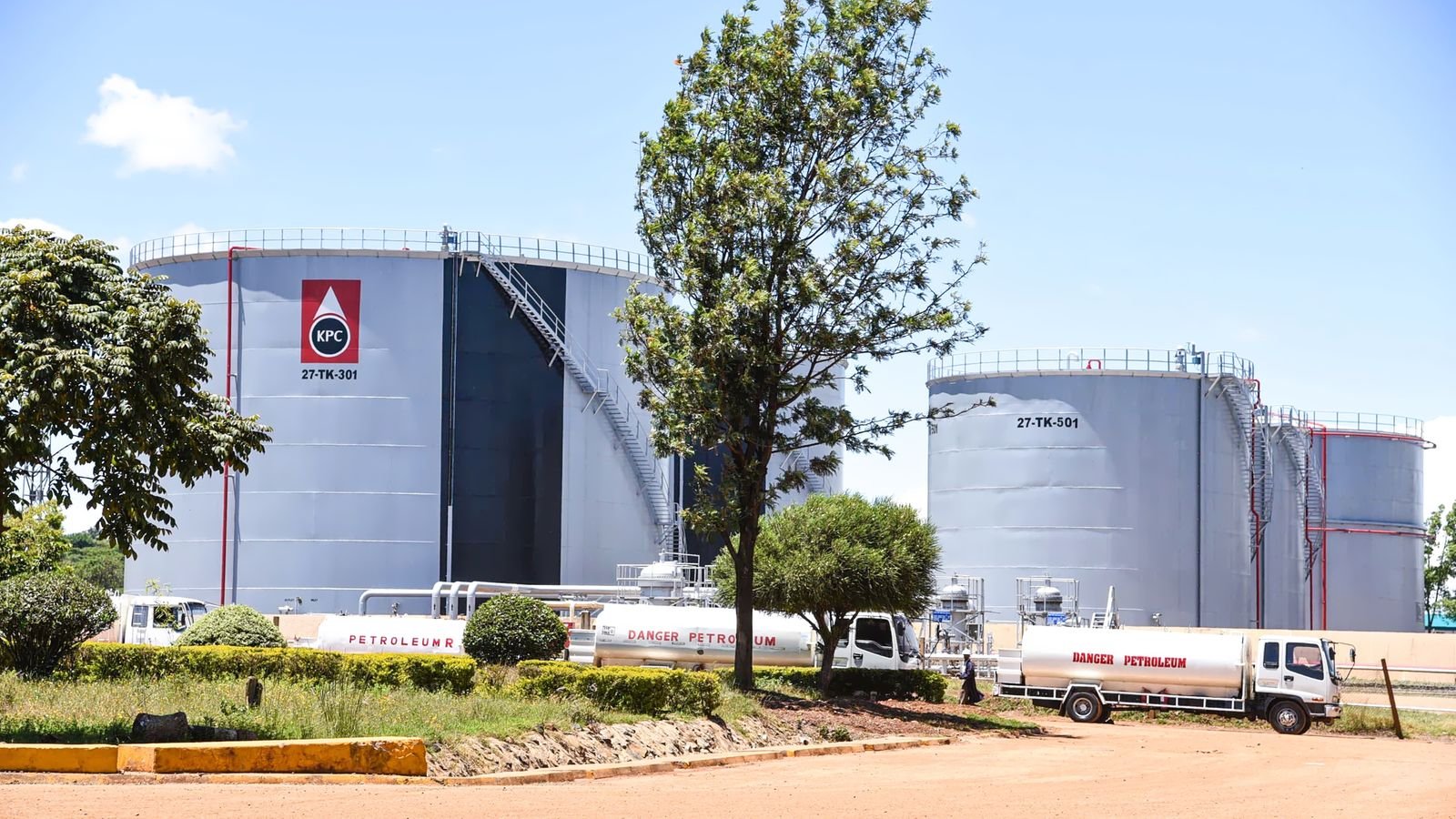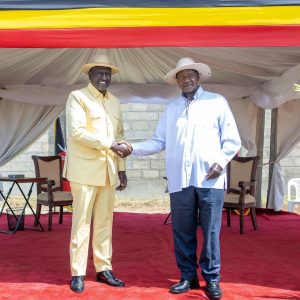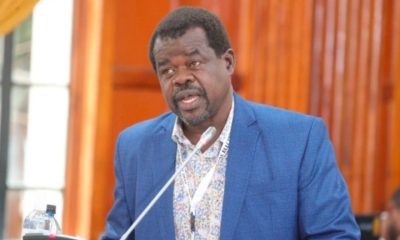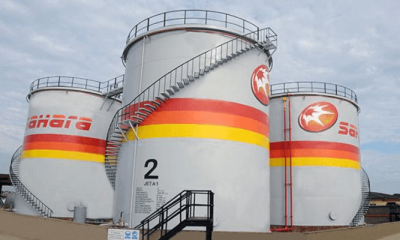Africa
Uganda To Own Stakes In Kenya Pipeline After Ruto Deal With Museveni
Under the plan, Kenya will divest 65 per cent of its stake while retaining a 35 per cent strategic shareholding.

Kenya has agreed to open ownership of the Kenya Pipeline Company (KPC) to Uganda in a major shift that recasts the region’s energy and logistics landscape, President William Ruto announced during an investment tour in Uganda on Sunday.
The move follows high-level negotiations between the two governments and comes as East African states push to secure long-term fuel supply routes and reduce dependence on middlemen.
Ruto said the government will list KPC on the Nairobi Securities Exchange as part of its ongoing privatisation drive, with Uganda invited to take up shares in what has long been one of Kenya’s most strategically guarded state corporations.
Ruto told a joint forum with President Yoweri Museveni that ministers from both countries had finalised a framework for shared ownership after a meeting in Nairobi last week.
He said the shift would not only deepen regional integration but also reflect the reality that KPC serves the entire northern corridor, not just Kenya.
“I want to thank you, Mr President, for agreeing to work with us. The ministers were in Nairobi last week and I have given the necessary guidance on the need for Uganda and Kenya, both public and private, to jointly own the Kenya Pipeline Company. KPC is not just a Kenyan facility but a regional facility,” Ruto said.
Under the plan, Kenya will divest 65 per cent of its stake while retaining a 35 per cent strategic shareholding.
Uganda is expected to become one of the anchor investors, a move insiders say could ease long-running tensions over fuel import routes, which escalated this year after Kampala shifted its oil procurement model and sought direct government-to-government supply contracts.

President William Ruto received by his Ugandan counterpart Yoweri Museveni for the groundbreaking ceremony of the Devki Steel Factory in Osukuru, Tororo District, Uganda
Uganda currently relies almost entirely on KPC’s infrastructure to transport petroleum imports from Mombasa and through the Eldoret–Kampala corridor.
A stake in the company would give Kampala influence over tariffs, stockholding arrangements, and future network development—an issue that has been a sticking point in bilateral talks for years.
Ruto urged Ugandan investors, and East Africans more broadly, to buy into KPC once the shares are floated.
He framed the partial privatisation as an opportunity to spread ownership of critical assets and unlock new capital for expansion.
Parallel to the share sale, Ruto revealed that plans to extend the Eldoret–Kampala petroleum pipeline toward Rwanda and eastern DRC are “at an advanced stage,” adding that both governments will co-invest in the project.
The expansion aims to position the corridor as the region’s dominant fuel artery at a time when Tanzania has been aggressively marketing its Central Corridor as an alternative supply route.
The Kenyan leader also said Nairobi and Kampala will in January launch the long-delayed extension of the Standard Gauge Railway from Naivasha to Kampala, which will link with the Malaba–Kampala line and onward into eastern Congo.
The revival of the SGR deal signals renewed political goodwill after years of stalled financing talks and shifting regional alliances.
The announcement comes barely two weeks after Museveni stirred controversy with comments about landlocked states’ “right” to secure access to the Indian Ocean, remarks which sparked debate in Kenya over territorial sovereignty.
Museveni insisted he was speaking about economic survival and regional cooperation rather than threats. Ruto on Sunday dismissed the uproar as media misinterpretation and said Museveni had done “nothing wrong” in highlighting Uganda’s logistical vulnerabilities.
The KPC initial public offering, already approved by Parliament in October, is expected to be completed by March 31, 2026.
Treasury officials say the sale will target a mix of retail, regional, and institutional investors, with Uganda’s participation formalising a long-sought energy partnership between the two neighbours.
If executed as planned, the joint ownership will mark the most significant restructuring of Kenya’s energy infrastructure in decades and could cement Nairobi–Kampala cooperation at a time of shifting regional politics and rising competition for control of East Africa’s trade routes.
Kenya Insights allows guest blogging, if you want to be published on Kenya’s most authoritative and accurate blog, have an expose, news TIPS, story angles, human interest stories, drop us an email on [email protected] or via Telegram
-

 Grapevine1 week ago
Grapevine1 week agoAlleged Male Lover Claims His Life Is in Danger, Leaks Screenshots and Private Videos Linking SportPesa CEO Ronald Karauri
-

 Lifestyle2 weeks ago
Lifestyle2 weeks agoThe General’s Fall: From Barracks To Bankruptcy As Illness Ravages Karangi’s Memory And Empire
-

 Grapevine4 days ago
Grapevine4 days agoRussian Man’s Secret Sex Recordings Ignite Fury as Questions Mount Over Consent and Easy Pick-Ups in Nairobi
-

 Investigations2 weeks ago
Investigations2 weeks agoEpstein Files: Sultan bin Sulayem Bragged on His Closeness to President Uhuru Then His Firm DP World Controversially Won Port Construction in Kenya, Tanzania
-

 Business2 weeks ago
Business2 weeks agoKRA Can Now Tax Unexplained Bank Deposits
-

 Investigations1 week ago
Investigations1 week agoEpstein’s Girlfriend Ghislaine Maxwell Frequently Visited Kenya As Files Reveal Local Secret Links With The Underage Sex Trafficking Ring
-

 News1 week ago
News1 week agoState Agency Exposes Five Top Names Linked To Poor Building Approvals In Nairobi, Recommends Dismissal After City Hall Probe
-

 Investigations20 hours ago
Investigations20 hours agoMulti-Million Dollar Fraud: Three Kenyans Face US Extradition in Massive Cybercrime Conspiracy
























